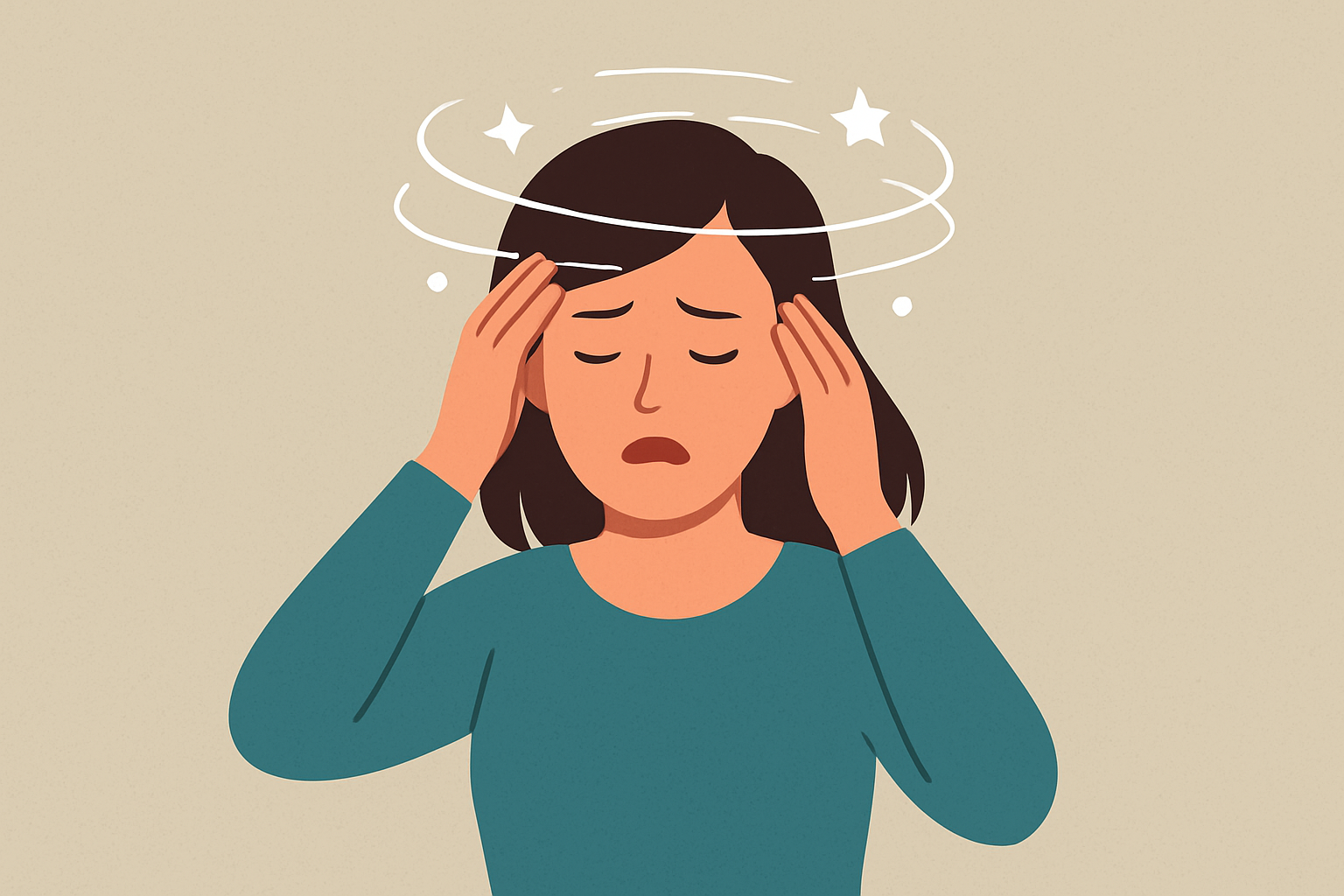Addressing Dizziness and Vertigo: Understanding the Causes, Symptoms, and Treatments

Dizziness and Vertigo can be frightening conditions that affect our balance and daily activities. The world around us can feel like it’s spinning, we may feel lightheaded, or have trouble walking steady. It is essential to understand the difference between dizziness and vertigo, what causes it, and how to treat it. In this blog post, we will explore the causes and symptoms of dizziness and vertigo and provide various treatment options to help manage this condition.

1) Understanding Dizziness 😵💫
Dizziness is a lightheaded feeling that can occur due to a range of reasons such as low blood pressure, dehydration, and medication. Meniere’s disease, an inner ear condition, also causes dizziness. To diagnose the cause of dizziness, doctors may perform tests such as blood work, electrocardiogram, and neurological exams. Simple solutions such as consuming fluids and salt or avoiding triggers such as alcohol can alleviate the symptoms of dizziness.
2) Exploring Vertigo 🤯
Vertigo is a sensation of spinning, even while standing still. Vertigo can be a symptom of inner ear disorders such as vestibular neuronitis, benign paroxysmal positional vertigo (BPPV), Meniere’s disease, and migraines. It can often be indicated by a sudden, jarring movement, such as getting out of bed. Treatment can include medication, rehabilitation, or surgical options based on the severity of the condition.
3) Tips for Managing Dizziness and Vertigo 🌪️
For people living with dizziness and vertigo, specific activities such as driving, climbing stairs, etc. may cause discomfort and may need to be avoided. It’s essential to observe these triggers and seek medical attention if necessary. Taking enough rest and maintaining good hydration and diet are also essential. Falling is a common problem for people living with dizziness and vertigo, and precautions such as using walking aids and avoiding high-risk activities can help prevent falls.
4) Treatment Options 🧑⚕️
Various treatment options are available, depending on the cause. Vestibular rehabilitation is a form of therapy that aims to reduce dizziness and improve balance. Medications such as meclizine, benzodiazepines, and antihistamines can be prescribed by a physician for relief. In some severe cases, surgery may be required.
5) Lifestyle Modifications that can help manage ✨
Making some changes to our lifestyle can help manage dizziness and vertigo effectively. Avoiding bright, flashing lights, or excessive visual stimulation can reduce the symptoms of dizziness and vertigo. Practicing relaxation techniques, such as deep breathing and mindfulness, can provide relief. Cutting back on caffeine, alcohol, and cigarettes can also be beneficial.
Conclusion
Dizziness and vertigo can significantly impact our quality of life, but there are ways to manage and alleviate the symptoms effectively. Understanding the underlying causes, seeking medical attention when necessary, and adopting lifestyle modifications can significantly improve our well-being. If you experience severe symptoms, it is essential to consult a healthcare professional for a proper diagnosis and treatment plan. By addressing dizziness and vertigo effectively, we can experience a better quality of life and go about our daily activities with ease.
Book your appointment with ease today 🙂